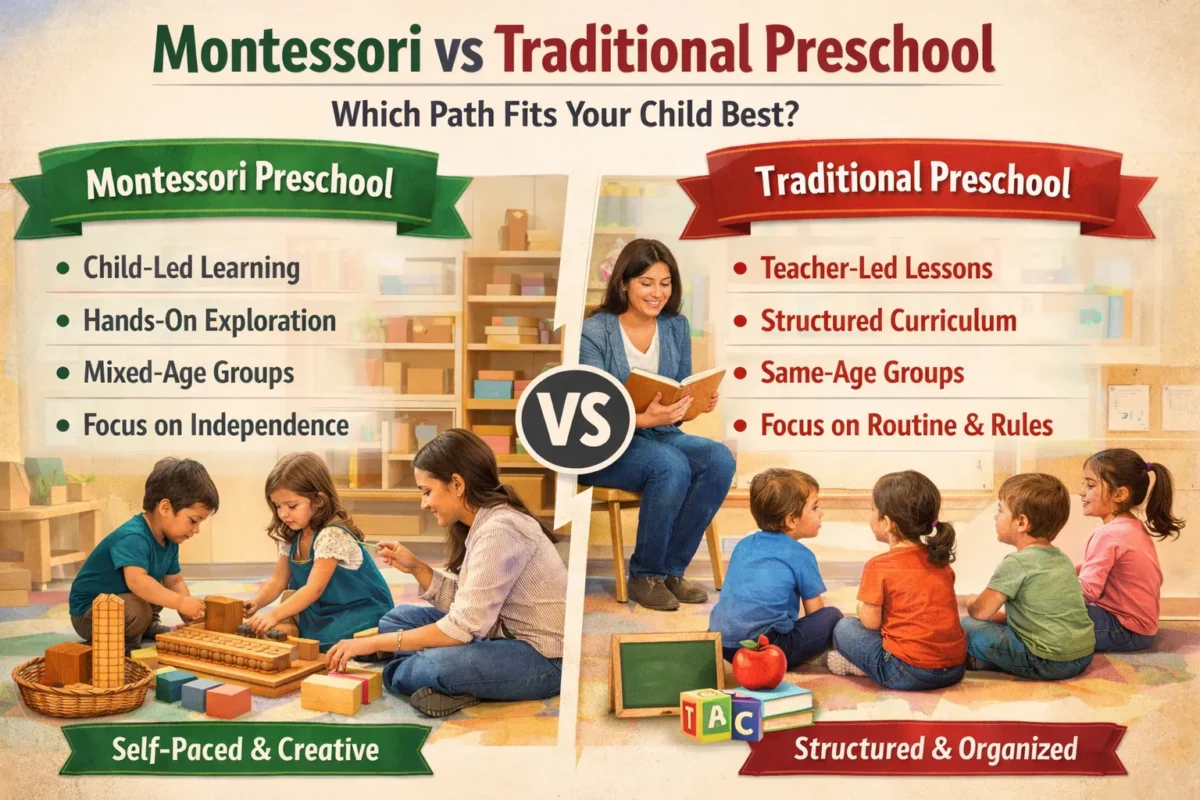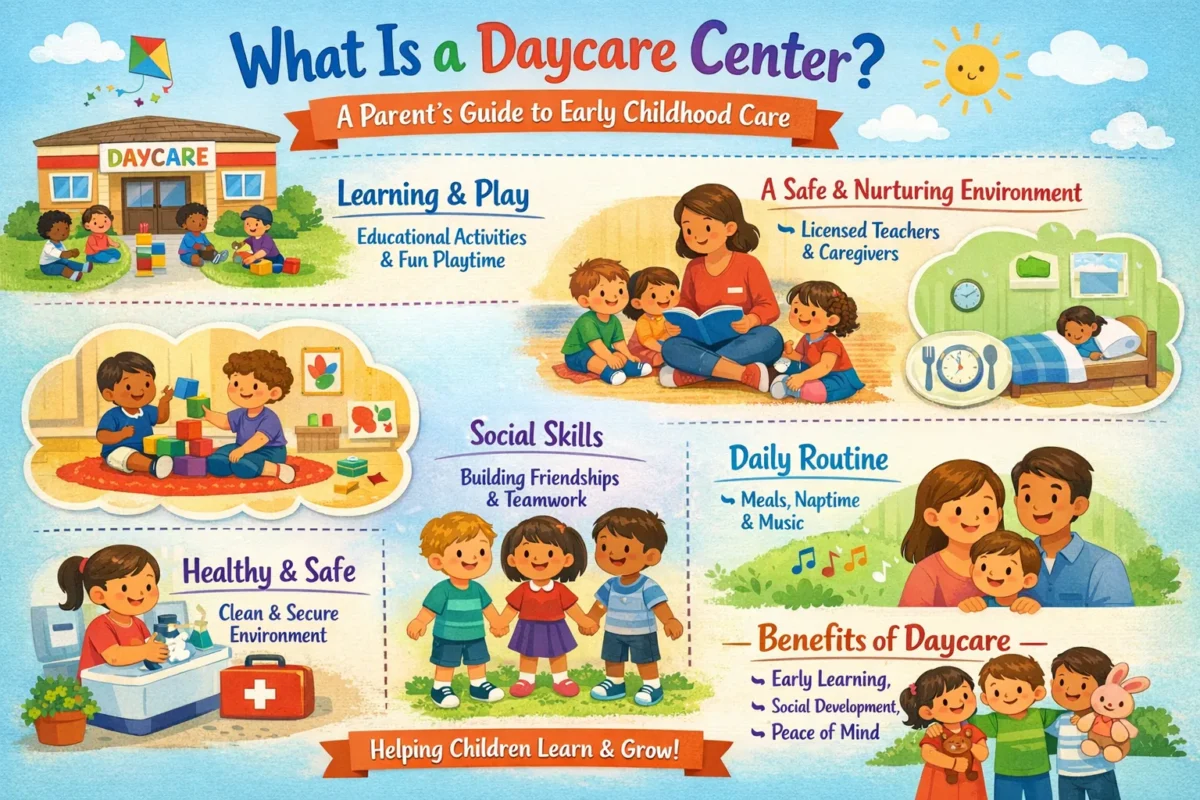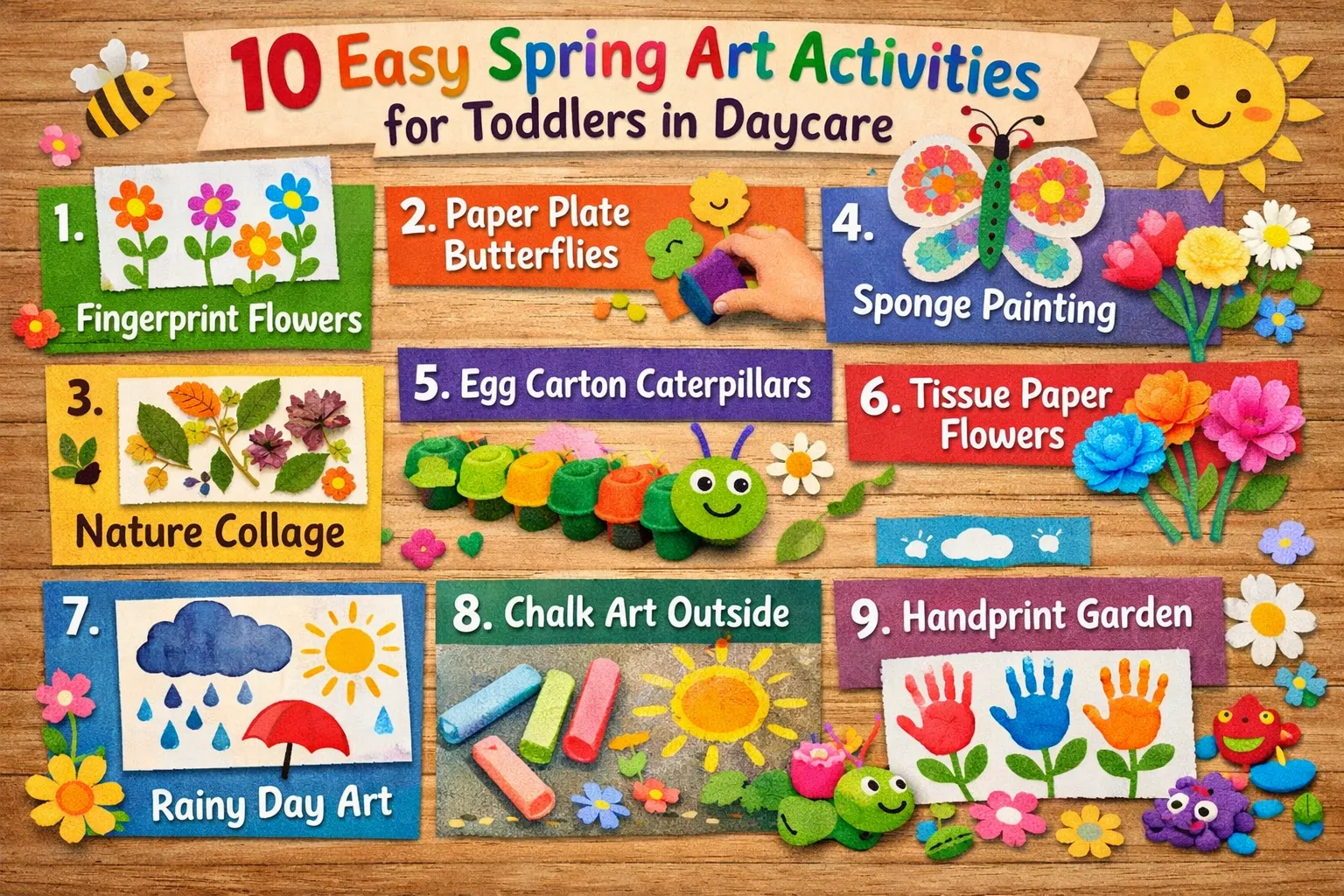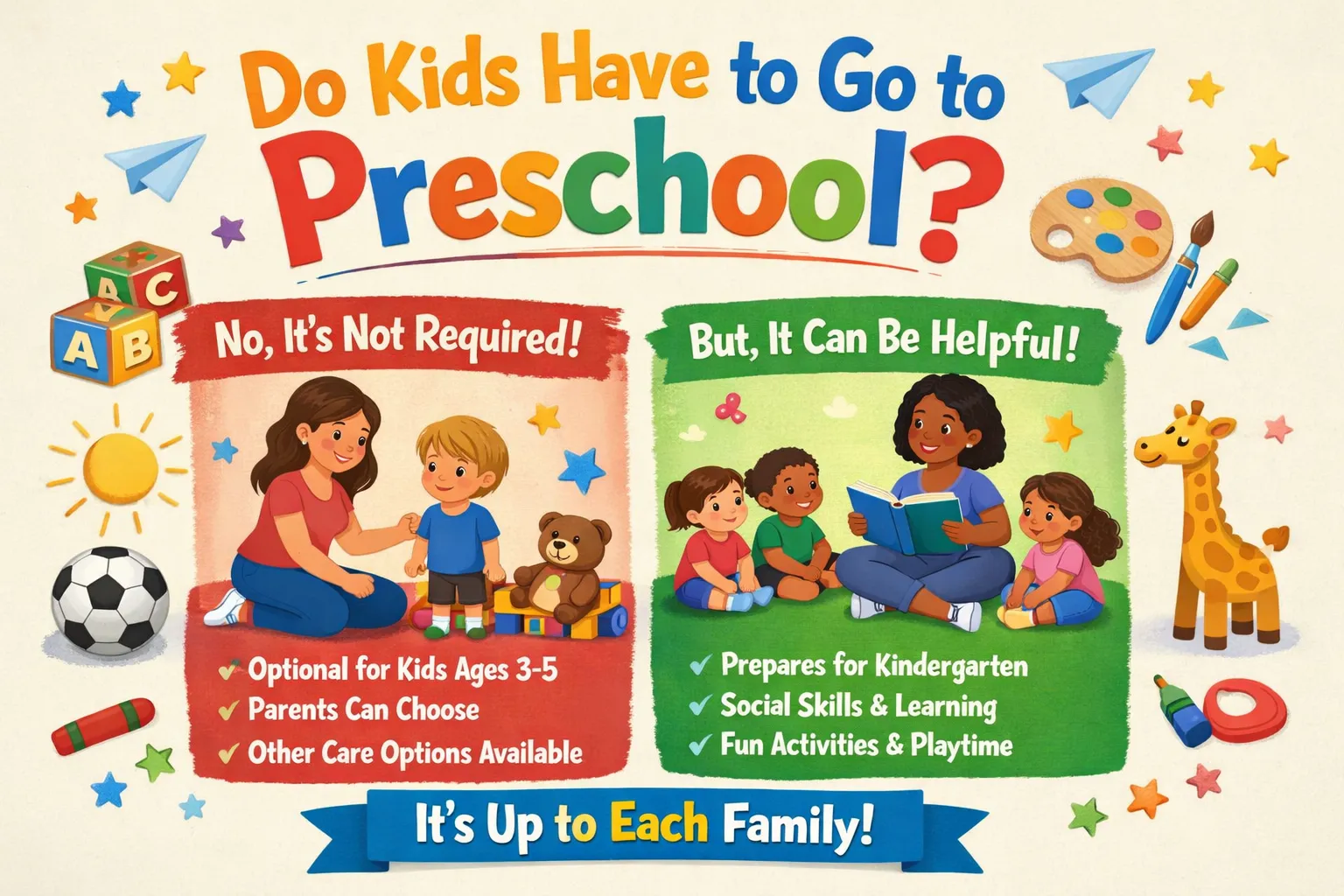Early education lays the foundation for a child’s lifelong learning, behavior, and overall well-being. During the first few years of life, children’s brains develop rapidly, making this a crucial time for building essential skills and habits. Quality early education programs help young learners grow in areas such as language, problem-solving, and emotional awareness—all of which contribute to their future academic success and personal development.
Understanding the long-term impact of early childhood development can help parents make informed decisions about their child’s learning journey. In this blog, we’ll explore why early education is so important and how it shapes the path toward a brighter, more confident future.
What is Early Education?
Early education refers to the structured learning and care children receive from birth to around age eight. This stage includes preschool, kindergarten, and the early elementary years, all of which play a vital role in a child’s growth. During this time, children are not only learning letters and numbers—they’re also developing social skills, emotional understanding, and the ability to think critically.
Rather than focusing solely on academic subjects, early education encourages exploration, play-based learning, and hands-on experiences. These methods help young children absorb new information in a way that feels natural and engaging. By fostering curiosity and a love for learning early on, children are better prepared for the challenges of school and life beyond the classroom.
Cognitive Development in Early Years
The early years of a child’s life are a time of rapid brain development, making it the perfect stage to build strong cognitive skills. Early education helps children begin to understand the world around them through structured activities, guided play, and interactive learning. These experiences support the development of memory, attention, language, and problem-solving abilities.
When children are introduced to simple concepts like counting, recognizing shapes, or storytelling, they begin to make connections that lay the groundwork for more complex thinking. Activities like puzzles, matching games, and group discussions stimulate their minds and encourage logical reasoning. Over time, this early exposure builds confidence and fosters a deeper interest in learning, which carries into their elementary school years and beyond.
Social and Emotional Benefits
Early education does more than teach numbers and letters—it also plays a key role in shaping a child’s emotional and social development. In a structured learning environment, young children learn how to interact with others, express their feelings, and understand different perspectives. These early experiences help them build empathy, patience, and a sense of cooperation.
Through group activities, sharing, and classroom routines, children begin to develop important social skills like listening, taking turns, and resolving conflicts. They also learn how to handle emotions in healthy ways, boosting their self-confidence and emotional resilience. These foundational skills not only support success in school but also prepare children for strong, healthy relationships later in life.
Physical Development and Motor Skills
Physical growth is a key part of early childhood education, and it goes hand-in-hand with learning. Young children need opportunities to move, explore, and use their bodies to develop coordination, strength, and motor skills. Early education programs often include activities like outdoor play, arts and crafts, music, and movement games—all of which support physical development in fun, engaging ways.
Fine motor skills, such as holding a pencil, using scissors, or stacking blocks, are essential for everyday tasks and school readiness. At the same time, gross motor skills—like running, jumping, and balancing—help build muscle control and overall physical health. By encouraging active play and hands-on learning, early education helps children grow stronger while also building the focus and discipline needed for academic learning.
Long-Term Educational Impact
The benefits of early education don’t end in the classroom—they can have a lasting impact throughout a child’s academic journey and beyond. Children who attend quality early learning programs often show stronger performance in elementary school, better language and math skills, and greater enthusiasm for learning. These early advantages contribute to higher achievement and more positive attitudes toward education as they grow.
Research has shown that early learners are more likely to stay engaged in school, graduate from high school, and pursue higher education. The structure and support provided during these formative years help children develop habits like responsibility, perseverance, and self-discipline. These skills not only boost academic success but also lay the foundation for personal and professional growth later in life.
Role of Parents and Teachers
Both parents and teachers play a vital role in a child’s early education journey. When caregivers and educators work together, they create a supportive and consistent environment that encourages growth and learning. Children thrive when they feel secure, understood, and encouraged—both at home and in the classroom.
Teachers provide structured learning experiences, introduce new ideas, and guide children as they develop important skills. At the same time, parents reinforce those lessons by nurturing curiosity, offering emotional support, and staying involved in their child’s progress. This partnership helps ensure that children receive the guidance they need to build confidence, explore their interests, and reach important developmental milestones.
Why It Matters at Our Daycare in Alpharetta
At Daycare Alpharetta, we understand that the early years of a child’s life are crucial for setting the stage for future success. Our daycare program is designed to provide a nurturing, stimulating environment where your child can grow and develop to their fullest potential. Through a combination of hands-on activities, structured learning, and play, we focus on fostering cognitive, social, emotional, and physical development in every child.
Our experienced educators work closely with parents to ensure that each child’s unique needs are met. From creating a welcoming atmosphere to offering personalized attention, we strive to make every moment at Daycare Alpharetta a learning opportunity. Whether your child is just starting their educational journey or advancing to the next stage, we’re here to support their growth every step of the way.
Conclusion
Early education is more than just the foundation for academic success—it’s a critical period in a child’s development that influences their social, emotional, and physical growth for years to come. By investing in quality early learning experiences, parents and educators set children on a path to a bright and fulfilling future.
At Daycare Alpharetta, we are dedicated to providing an environment where every child can explore, learn, and grow in ways that are both fun and meaningful. If you’re ready to give your child the best start, we invite you to learn more about our programs or schedule a visit today.
Frequently Asked Questions
-
What is early education and why is it important?
Early education refers to the structured learning experiences children receive from birth to around age eight. It plays a crucial role in cognitive, emotional, and social development, helping children build essential skills for later academic and life success.
-
At what age should a child start early education?
While children can benefit from early learning experiences as early as infancy, most formal early education programs begin around age three or four. Starting early provides a strong foundation for future learning and development.
-
How does early education impact a child’s social skills?
Early education helps children develop critical social skills like communication, cooperation, and conflict resolution. These skills are essential for building relationships and adjusting to school environments later on.
-
What are the cognitive benefits of early education?
Early education boosts cognitive abilities like problem-solving, critical thinking, and language skills. Children exposed to early learning experiences tend to develop stronger academic performance and a love for learning in their later years.
-
How does physical activity play a role in early education?
Physical activity in early education programs helps develop motor skills, coordination, and overall health. Movement-based activities such as playtime, dance, and sports also support brain development and cognitive learning.
-
What role do parents play in early childhood education?
Parents are key partners in their child’s education. By providing emotional support, encouraging curiosity, and reinforcing what children learn at school, parents help solidify the lessons taught in early education programs.
-
How can I get my child started at Daycare Alpharetta?
Getting started at Daycare Alpharetta is easy! Simply contact us to schedule a tour or learn more about our programs. Our team is ready to answer any questions and help you find the best fit for your child’s needs.









